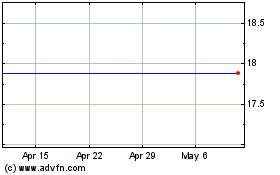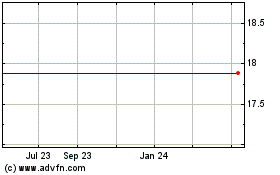Cryolife Registry Demonstrates Positive Adult and Pediatric Long-Term Outcomes Following Heart Valve Implantation
January 12 2004 - 8:00AM
PR Newswire (US)
Cryolife Registry Demonstrates Positive Adult and Pediatric
Long-Term Outcomes Following Heart Valve Implantation Comprehensive
Allograft Heart Valve Registry Tracks More Than 2,600 Patients for
10 Years Following Implantation ATLANTA, Jan. 12
/PRNewswire-FirstCall/ -- CryoLife, Inc. , a human tissue
processing and bio-surgical device company, announced updated
results from its registry, tracking clinical performance of its
cryopreserved heart valve allografts. Data from this registry is
used to project long-term performance by actuarial statistical
analysis(1). Results indicate 100 percent of pediatric patients and
98 percent of adult patients receiving human heart valves processed
by the Company were reported to be free from thromboembolic
(blockage) events for a period of ten years following implantation.
These and other patient outcomes were detailed in the Company's
CryoValve(R) Human Heart Valve Clinical Experience 2003 report, an
annual publication tracking more than 2,600 patients receiving
human heart valves processed by CryoLife for a period of ten years
following the implant. The CryoValve Human Heart Valve Clinical
Experience 2003 report is available on the Company's website,
http://www.cryolife.com/ . Additionally, 95 percent of adult
recipients of heart valves processed by the Company were reported
to be free from endocarditis, an inflammation of the lining of the
heart and its valves, for ten years following the implant
procedure. For pediatric patients, 99 percent were reported to be
free from endocarditis during this period. Also, freedom from
valve-related death within ten years of implantation was 93 percent
and 97 percent for adult and pediatric patients, respectively.
These statistics confirm the significant patient benefit conferred
by human cryopreserved heart valve allografts. "This unique
registry of patients is maintained and managed by CryoLife for the
benefit of surgeons and their patients undergoing reconstructive
heart valve procedures everyday at hospitals nationwide," said
Steven G. Anderson, President and CEO of CryoLife. "This is the
tenth consecutive year that CryoLife has published the CryoValve
Human Heart Valve Clinical Experience 2003 report which has become
a recognized and valuable outcomes resource within the cardiac
surgeon community. We believe CryoLife is the only human tissue
processor that tracks and publishes clinical performance of
allograft heart valves." A registry is maintained on a subset of
CryoLife allograft heart valves implanted in the United States to
provide ongoing clinical data useful to surgeons in making informed
decisions on the most appropriate surgical procedure for patients
in need of a heart valve replacement, particularly for children
with congenital heart defects. Seven implanting institutions
throughout the United States participate in this registry.
Cryopreserved human heart valve allografts do not require the use
of anticoagulant drug therapy and so are considered the heart valve
of choice for active young adults, women of childbearing age and
for children under the age of 15. The study population within the
registry consists of 1,782 males (68%) and 850 females (32%). The
age of the recipients at the time of implant ranged from 1 day to
87 years, with 1,244 (47%) of the patients between the ages of 0-17
years (pediatric patients) and 1,388 (53%) between 18-84 years
(adult patients). The data in the CryoValve Human Heart Valve
Clinical Experience 2003 report, collected and analyzed on a yearly
basis, includes patient survival and freedom from endocarditis,
thromboembolism, and structural valve deterioration. The updated
report is published annually and made available to surgeons and
their patients. "The data contained in the CryoValve Human Heart
Valve Clinical Experience 2003 report is useful to surgeons making
decisions on the most appropriate surgical procedure for cardiac
patients, particularly in children with congenital heart defects,"
said Donald B. Doty, M.D., Chief, Department of Surgery, LDS
Hospital. "We are pleased to participate in this registry and
believe it is a valuable tool and is unique to the tissue
industry." Since the Company was founded in 1984, more than 100,000
patients have received CryoLife-processed tissues in cardiac,
vascular, and orthopaedic reconstruction surgical procedures. More
than 44,000 cryopreserved allograft heart tissues have been
implanted at over 800 institutions in the United States, Canada and
Europe. CryoLife, Inc. is a leader in the processing and
distribution of implantable living human tissues for use in
cardiovascular and vascular surgeries throughout the United States
and Canada. The Company's BioGlue(R) Surgical Adhesive is FDA
approved as an adjunct to sutures and staples for use in adult
patients in open surgical repair of large vessels, is CE marked in
the European Community and approved in Canada for use in soft
tissue repair, and approved in Australia for use in vascular and
pulmonary sealing and repair. The Company also manufactures the
SynerGraft(R) Vascular Graft, which is CE marked for distribution
within the European Community. (1) Definition: Actuarial
statistical analysis is a procedure used to predict the time until
an event occurs. Statements made in this press release that look
forward in time or that express management's beliefs, expectations
or hopes are forward-looking statements within the meaning of the
Private Securities Litigation Reform Act of 1995. These future
events may not occur as and when expected, if at all, and, together
with the Company's business, are subject to various risks and
uncertainties. These risks and uncertainties include that the
Company's 2003 report may not accurately predict outcomes for
patient populations, revenues may not meet expectations, that
demand for CryoLife preserved tissues may not return to prior
levels, the possibility that the FDA could impose additional
restrictions on the Company's distribution of tissues, require a
recall, or prevent the Company from distributing tissues, that the
Company's 510k application for SG processed heart valves may
require significant time and expense and may not be cleared on a
timely basis or at all, that FDA regulation of the Company's
CryoValve SG and CryoVein SG may require significant time and
expense, that the Company may not have sufficient borrowing or
other capital availability to fund its business, that present and
future litigation may be resolved only by substantial payments by
the Company in excess of available insurance coverage and amounts
to be set aside for products liability cases by CryoLife since the
outcomes of products liability securities class action and
derivative cases are inherently uncertain, that pending litigation
cannot be settled on terms acceptable to the Company, that the
Company may not have sufficient resources to pay punitive damages
which are not covered by insurance or liabilities in excess of
available insurance, the possibility of severe decreases in the
Company's revenues and working capital, that to the extent the
Company does not have sufficient resources to pay the claims
against it, it may be forced to cease operations or seek protection
under applicable bankruptcy laws, changes in laws and regulations
applicable to CryoLife and other risk factors detailed in
CryoLife's Securities and Exchange Commission filings, including
CryoLife's Form 10-K filing for the year ended December 31, 2002,
and the Company's other SEC filings. The Company does not undertake
to update its forward-looking statements. For additional
information about the company, visit CryoLife's web site:
http://www.cryolife.com/ . Contact: Joseph T. Schepers Vice
President, Corporate Communications (770) 419-3355 DATASOURCE:
CryoLife, Inc. CONTACT: Joseph T. Schepers, Vice President,
Corporate Communications of CryoLife, Inc., +1-770-419-3355 Web
site: http://www.cryolife.com/
Copyright
CryoLife (NYSE:CRY)
Historical Stock Chart
From Jun 2024 to Jul 2024

CryoLife (NYSE:CRY)
Historical Stock Chart
From Jul 2023 to Jul 2024
